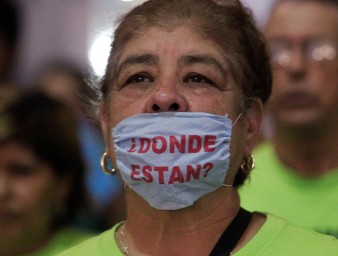Preventing torture before it happens: Ten years of the Optional Protocol
18 November 2016

“This is the most powerful tool in the international toolbox to try and ensure that torture does not happen,” said Malcolm Evans
This powerful tool is the Optional Protocol to the Convention Against Torture (OPCAT), and Evans was speaking of it on its 10th anniversary. Evans chairs the Subcommittee on the Prevention of Torture (SPT), the group whose job is to ensure that the OPCAT is implemented in practice.
The OPCAT is at the forefront when it comes to dealing with the prevention of torture. The emphasis of the mandate is on practical ways to prevent torture from happening. This is done through the provision in the mandate that allows the committee to visit a country and its places of detention, unannounced, and “go where it wishes, and see who and what it wishes,” said Evans.
In the last ten years, SPT members have done more than 50 country visits, making recommendations that have resulted in many different issues, such as improved access legal representation, including for children, reinforcing guarantees for detainees, better access to rights-based information to prisoners, and better training for judges, police, prison staff and health professionals.
“Perhaps the most impressive achievement under the OPCAT has been the establishment of so many national preventive mechanisms (NPM), many of whom do amazing work in countries where no prevention work of this nature was ever done before. It is a record of real, practical and meaningful achievement.”
In the case of Georgia, when the NPM was established, the country was facing a period of “wide spread torture and ill treatment in the criminal justice system,” said Nika Kvaratskhelia, who heads the NPM Unit in Georgia.
The NPM has successfully carried out more than 1,000 unannounced and regular preventative visits to places of detention in the country and in its seven years. As a result of the NPM and work with the State has led to wider reforms across the country. Kvaratskhelia pointed out improvements in the material conditions of jails (with several jails being closed because of poor conditions), better running of jails through training in prison management, and monitoring of the situation of people with disabilities in detention.
“The major lesson learnt during seven years of work is that there will be very little impact of OPCAT system without truly constructive dialogue between NPMs and State parties,” Kvaratskhelia said.
It is this three part relationship – between human rights, NPMs and the state – that help to make the OPCAT successful said Ambassador Coly Seck, Permanent Representative of Senegal in Geneva.
“The OPCAT has been able to give greater visibility to its important mandate by showing its value both in its method and its results,” he said.
In its ten years, OPCAT has managed to bring about better protection against torture and ill-treatment in the 83 countries that have signed up so far, said Evans. For the future, he hoped more countries would accept its mandate by ratifying the OPCAT.
“There will always be the need for the SPT because there is always a risk of torture and ill-treatment happening and so it is necessary to ensure that all possible steps are taken to reduce this risk as much as possible,” Evans said.
18 November 2016




